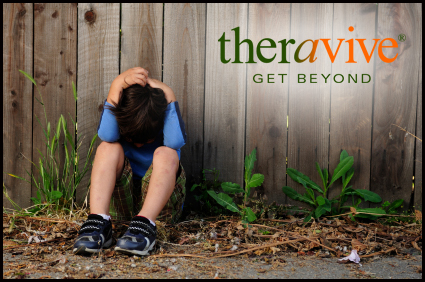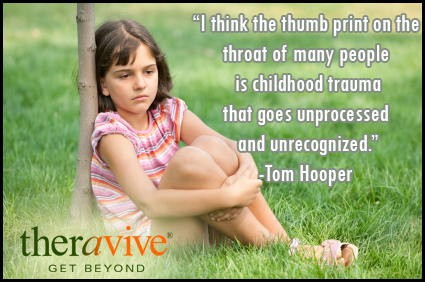 It is commonly said that trauma is a normal reaction to abnormal events. Even the most resilient children and teens may become traumatized. Resilience is a protective factor in coping with normal adversities. But in situations where children (or adults) feel a loss of control – powerless to protect themselves or to get the protection they need – trauma may result. In those cases, it is helpful to know how to recognize the signs of trauma and how to respond effectively.
It is commonly said that trauma is a normal reaction to abnormal events. Even the most resilient children and teens may become traumatized. Resilience is a protective factor in coping with normal adversities. But in situations where children (or adults) feel a loss of control – powerless to protect themselves or to get the protection they need – trauma may result. In those cases, it is helpful to know how to recognize the signs of trauma and how to respond effectively.
Young Children
Trauma is very hard to identify in pre-verbal children. The signs are generally regressive behaviors, meaning those from an earlier age/stage of development, or changes from their normal routine or behavior. Since pre-verbal children are unable to tell us what is wrong, caregivers must be very attuned to their usual disposition and behaviors. The time to act is when a pattern of change is noted, or the child offers consistent signs of distress (crying, not eating, abnormal sleeping patterns, etc.).
With young children, the pediatrician is the go-to-person for any changes in behavior or other concerns. It is very important to be specific about the child’s normal behavior/disposition and what changes you notice. Keep a log of these changes to indicate frequency, length of time (crying, sleeping, refusal to eat, etc.), your actions and the response of the child in each one. It is helpful for professionals to see a chart or log to recognize patterns.
It is also critical to note any people or places your child has come in contact with while outside of your watchful eye. This should include sitters, child care centers, relatives, friends, kids from the neighborhood, cleaning crews or repair persons, etc. It is possible that s/he may have experienced some kind of abuse if no other obvious stressors are known. It will be critical to have information about anyone who had access to your child should an investigation become necessary.
Preschool and Elementary Age Children
Most of the above is true for preschool and elementary age children, also. If you are unsure of exposure to a traumatic stressor, but notice that your child is exhibiting unusual behavior, begin to ask gentle questions. Often children who have been bullied or abused are threatened with even worse treatment if they tell anyone. Sometimes this includes threats against their siblings, other family members or pets.
These kinds of threats are very effective. Hundreds of thousands of kids have been too afraid to disclose abuse and other mistreatment because of similar threats. Often that is how perpetrators are able to continue to abuse children over a long period of time. Children may also feel guilty or fear they did something wrong.

In any of these cases, the child may be afraid to tell the truth. The main reason children tell lies or avoid telling their parents about things is fear of getting punished or disappointing their parents. It is helpful to reassure your child that you will not get angry or be upset with him/her about anything s/he tells you. Your reaction to what you hear will shape how your child copes with the situation. Try to remember the following if you find yourself in this situation:
- Try to stay calm and do not assume the worst – your reaction and coping is critical.
- Once a disclosure has been made, assure your child that s/he did the right thing by talking to you about it, that s/he is not in trouble and that you are not upset with the child.
- Ask the child how s/he feels about what happened, or if they want to talk more about it.
- Be a supportive listener without overwhelming your child with more questions.
If there was abuse, coercion, force or threats:
- Ensure that your child feels safe and let him/her know that you will take care of everything.
- Do not overreact – try not to frighten your child by springing into action without thinking.
- Try to make calls or have any conversations about the incident in private.
- Contact the pediatrician first – a medical exam may be required ASAP.
- Ask to speak with the nurse or doctor, explain what happened and follow their instructions.
- Contact a therapist or counselor who specializes in play therapy or child trauma to help you and your child cope with the situation.
- Find someone to talk to about your own feelings, fears and concerns when your child is not present.
Restoring a sense of safety and security is important. Try to follow your usual routine as closely as possible. If s/he does not want to go to day care or school for a day or two, stay home with him/her, if possible. Do normal things, like watch movies or play outside. Talk about the incident only as much as s/he wants, but leave the door open for further discussion or questions.
If your child has trouble eating, don’t force the issue. Make his/her favorite foods and allow eating when hungry. Try to keep mealtime pleasant and free of stressful discussions.
If s/he has problems sleeping, do calming, soothing things before bed. Read or tell stories before bed (not scary ones). Consider leaving the door cracked or open, turn a light on in the hallway or use a night light if fear of the dark becomes a problem. Ensure your child that you are nearby and will check on him/her throughout the night. It may be necessary to allow young children to sleep with you or a sibling for a brief period, but try to limit this. Sometimes a stuffed animal or pet on the bed adds a sense of security.
Try to keep things as normal as possible. It is important to let school counselors, teachers or day care providers know if your child is coping with something traumatic, or even a difficult situation like separation of parents, illness/death of a family member or friend, loss of a pet or other stressors. You do not have to go into detail about personal matters. Simply give them the basics and ask them to make a special effort to let your child know how they can be helpful. It is also good to ask teachers or caregivers to let you know if they notice any unusual behavior at school or day care.
Make notes to share with the counselor or doctor if your child has on-going support. The more information they have, the better they can help your child. Children communicate through play, so pay attention to any themes you notice in your child’s play, as well as sleep and eating patterns.
A young boy I worked with early in my career lost his siblings in a fire. In the play therapy room, he always had a fire truck and police car involved in his play. He rescued and helped people in need. That was one way he worked through his feelings of helplessness about losing his siblings in a fire. You may notice themes in your child’s play. If so, share that information with the counselor.
________________________________________________________________________________________________________________________________
"Children's Reaction to Trauma: Suggestions for Parents." NASP Center. N.p., n.d. Web. 18 Aug. 2013.
USA. The National Child Traumatic Stress Network. National Child Traumatic Stress Network. N.p., n.d. Web. 18 Aug. 2013.
About the Author
 LuAnn Pierce, LCSW
LuAnn Pierce, LCSWI am a clinical social worker, therapist and writer. Currently, I offer online therapy and coaching services to people in Colorado and Wyoming. As a provider for the CO Department of Vocational Rehabilitation and the National MS Society, my expertise in counseling people who have disabilities and chronic illness is considerable. I have written for About.com, DailyRx.com, Theravive.com, GoodTherapy.org, SelfHelpMagazine.com and contribute to several other online health and mental health sites.
Office Location:
19th & Dahlia
Denver, Colorado
80220
United States
Phone: 303-910-2425
Contact LuAnn Pierce, LCSW
Professional Website:
http://HireASocialWorker.com